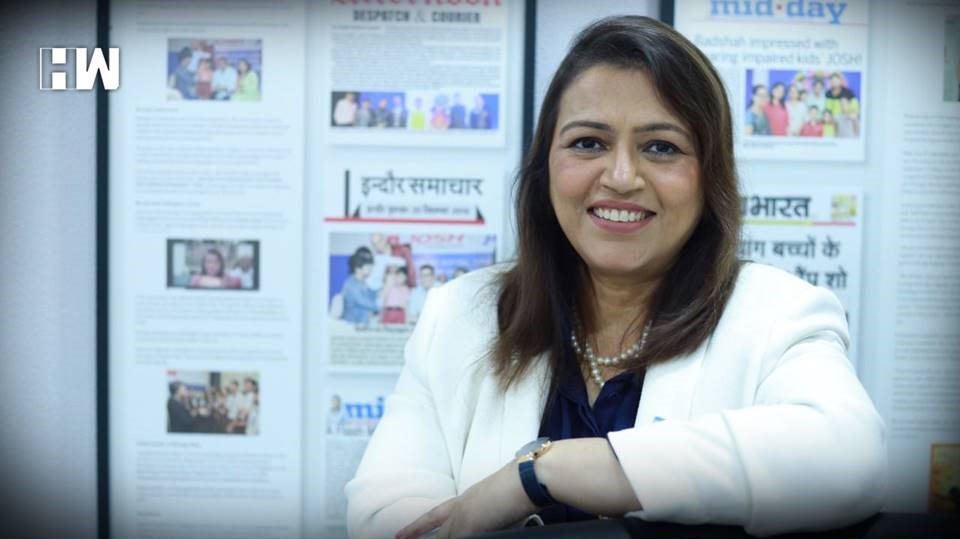Mumbai: Around 16% of the earth’s population consists of differently-abled people. They suffer from many disabilities like impaired hearing, physical disability, mental retardation, blindness, and much more. Although there has been growing awareness about acceptance of differently abled into society, many of them face bias and struggle to be included as a part of society. On the occasion of World Disability Day, marked on December 3rd every year to acknowledge the contribution of the differently abled, HW News interacted with Devangi Dalal. She is the only audiologist appointed as an advocate for CGHH – association of WHO promoting public awareness regarding hearing disorder. Devangi Dalal elaborated the difficulties and barriers being faced by the differently abled and what collective effort we can take for inclusivity.
Here is the transcription of the interview:
Question: What are the major barriers being faced by differently-abled people?
Answer: Differently abled people thrive for acceptance in society. Also, there are many misconceptions about handicaps. With digitization and technical development taking place around the world they have overcome challenges but because of misconception about differently abled people in the society, companies or people do not prefer hiring them. Hence, employment is a major barrier and due to this they are unable to become independent easily.
Question: Is Communication a major barrier for differently abled people?
Answer: I have never seen anyone who is completely deaf or with decisional hearing. They might be unable to hear on normal frequency, but they do processes 5% or 10% of hearing. With advancement in hearing aid technology, they can hear just like normal people. If one is diagnosed at the right time, we can help them. In UK & US, tests are conducted to check new borns’ ability, but in India this screening is not mandated yet. There within six month of child’s birth they test and find out how much hearing loss does the child has and on that basis they treat them by giving hearing aid or cochlear implant as per the diagnosed requirement, so that they can communicate like normal people. Even after wearing hearing aid, at any age, people speak only few words or sentences. A normal child too learns a language from its environment. So after they wear a hearing aid we communicate with them like we do with normal people, and we teach them how to interoperate the language then even they can speak and communicate like normal people. So communication becomes much easier when correct diagnosis is done on right time, correct treatment is given to them, and correct habitation is implemented for them.
Also, Read: G20 Presidency: French President Emmanuel Macron States “I trust my friend Narendra Modi to bring us together”
Question: How can we overcome this barrier?
Answer: Just like electronic media’s scientific revolution, technical development has taken place for hearing aid and cochlear impact for hearing impaired people. If we utilize the right technology, we can reduce disability from the society. Even people having metabolic disorder, autism, mental retardation, physical handicap, or blindness with the advancement and new revolution of technology can help in reduction of one’s disability. If you understand the disability of differently abled people, and with the help of physiotherapist, psychologist, dieticians, acupressure therapist, speech therapist, and doctors showing them the right part can overcome the communication barrier and other challenges very well.
Question: What do you wish people better understood about disability?
Answer: While dealing with any differently abled child, human approach full of kindness is a must! Making them feel emotionally secure is necessary. We should give them same platform as we give to normal people, so that they do not feel excluded. Being included boosts a lot of confidence and moral support in them.
Question: How can we ensure accessibility for differently abled through infrastructural changes?
Answer: Infrastructural changes are taking place and a lot of facilities are available for differently abled people. But because of lack of awareness and misconceptions they are unable to make use of those facilities. Government has made many facilities for people, and has shared the data on its official website for differently abled people.
Question: What initiatives should government take for disabled people?
Answer: 1. The government should gather together professionals who have right approach towards differently abled people.
- Government should form a standardized structures and protocols for differently abled people. In American Academy of Audiology, there are pediatric protocols for hearing impaired. These protocols are followed by 80 countries, but not by India. If those are implemented here at hospitals and NPOs, base level changes will take place. These changes are very important for future of the nation. Implementation of the pediatric protocols at special schools, where differently abled students study, will help children to integrate in the society. So by implementing those protocols, changes at the base level can be made and therefore, government should implement them.
As an independent media platform, we do not take advertisements from governments and corporate houses. It is you, our readers, who have supported us on our journey to do honest and unbiased journalism. Please contribute, so that we can continue to do the same in future.

